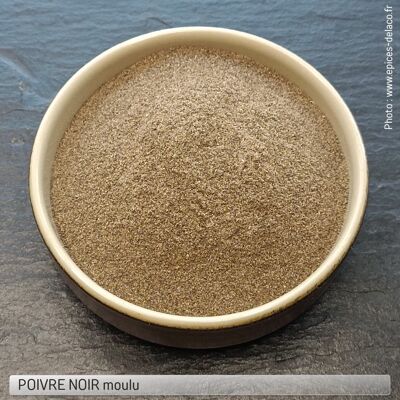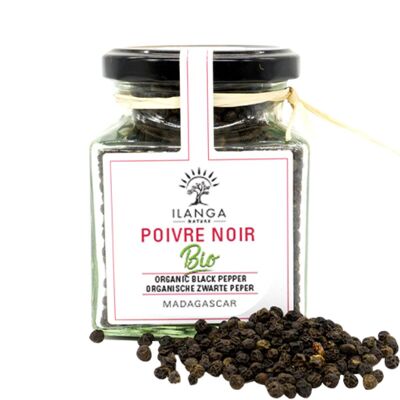


Organic black pepper, a spice picked when ripe, is characterized by distinct aromas that evoke floral, fruity and slightly lemony notes. It is also appreciated for its pungent flavor attributed to its high piperine content. On the palate, organic black pepper offers a moderate spiciness with aftertastes of nuts. This aromatic berry, belonging to the Piperaceae family, is grown organically in tropical countries such as India, Madagascar, Indonesia, Malaysia, Vietnam and others. It is harvested when ripe and is distinguished by its black color and spicy flavor, influenced by local climatic conditions. Piperine, a natural compound, gives black pepper its spicy taste. Organic black pepper offers many health benefits. It is a source of essential vitamins and minerals, such as vitamin C, potassium, magnesium and iron, which contribute to the functioning of the immune and nervous systems. Its piperine content improves the absorption of nutrients from other foods, thus enhancing its effectiveness. Additionally, organic black pepper is a powerful antioxidant, promoting digestion and protecting cells against damage caused by free radicals. It can be used in skin care and aromatherapy, relieving muscle pain and headaches. As an alternative to salt, it is recommended for people with high blood pressure and can be integrated into a sports diet. In cooking, organic black pepper goes well with white meats, poultry, lobster and pike perch. It can also be used in sweet recipes and desserts, bringing a characteristic note to tonka beans, cocoa beans, chocolate and fruits. In addition, it can be used sparingly in fresh goat cheeses or Brocciu. To fully reveal its flavor, it is recommended to grind organic black pepper before adding it at the end of cooking, or even after cooking. For salads, it can be mixed with a drizzle of olive oil for a few minutes for the optimal taste experience.

















